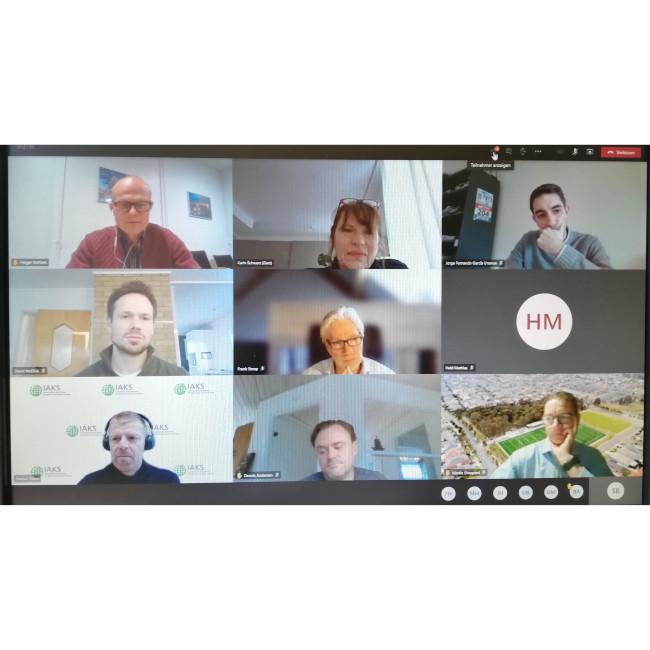IAKS starts Expert Circle for Outdoor Sports Surfaces
On 3rd December 2020, IAKS members met online for the kick-off meeting of the new Outdoor Sports Surfaces Expert Circle.
Under the guidance of Karin Schwarz-Viechtbauer (Austrian Institute for School and Sport Facilities / ÖISS) and Martin Sheppard (Smart Connection Consultancy, Australia), fourteen experts from eight countries discussed current challenges for synthetic turf systems.
Karin Schwarz-Viechtbauer introduced the two processes currently ruled by the European Commission, which could have major impact on operators and suppliers of synthetic turf fields. One major concern by the EC toward synthetic turf systems are the PAHs (polycyclic-aromatic hydrocarbons) in ELT (end of life tires) granules or mulches used as infill material in synthetic turf pitches. Another issue is the use of microplastics as infill on artificial turf pitches.
Martin Sheppard underlined that in Australia, synthetic turf fields tend to get a negative public perception, partly because of environmental impact, location problems (“not in my backyard”) connected to noise, light and traffic, and finally also because of misinformation through negative internet sources. He sees a need to better educate architects, engineers and consultants, as well as to improve the field management practice. He also believes that there are big opportunities for the future of synthetic turf systems if the industry understands how to embrace the UN Sustainable Development Goals with its products, and if organizations like IAKS support pro-active communication to inform about pros and cons of synthetic turf fields.
The round of participating experts started a highly knowledgeable talk about research findings, recycling methods, and interests of public stakeholders. Even if the majority of participants were from EU member countries, it became obvious that there is a wide range of perceptions for synthetic turf in different countries that leads to different priorities and preferences. The attitude about synthetic turf is quite dynamic. Whatever system will be applied, it is crucial to take decisions on comprehensive information. Some of the experts liked the idea to extend field testing globally, as well as to ask the European Commission for a longer transition period in case synthetic granules should be banned.

(from left to right, starting at top): Holger Kortbek, Karin Schwarz-Viechtbauer, Jorge Garcia Unanue, David McGhie, Frenk Stoop, Klaus Meinel, Dennis Anderson, Martin Sheppard